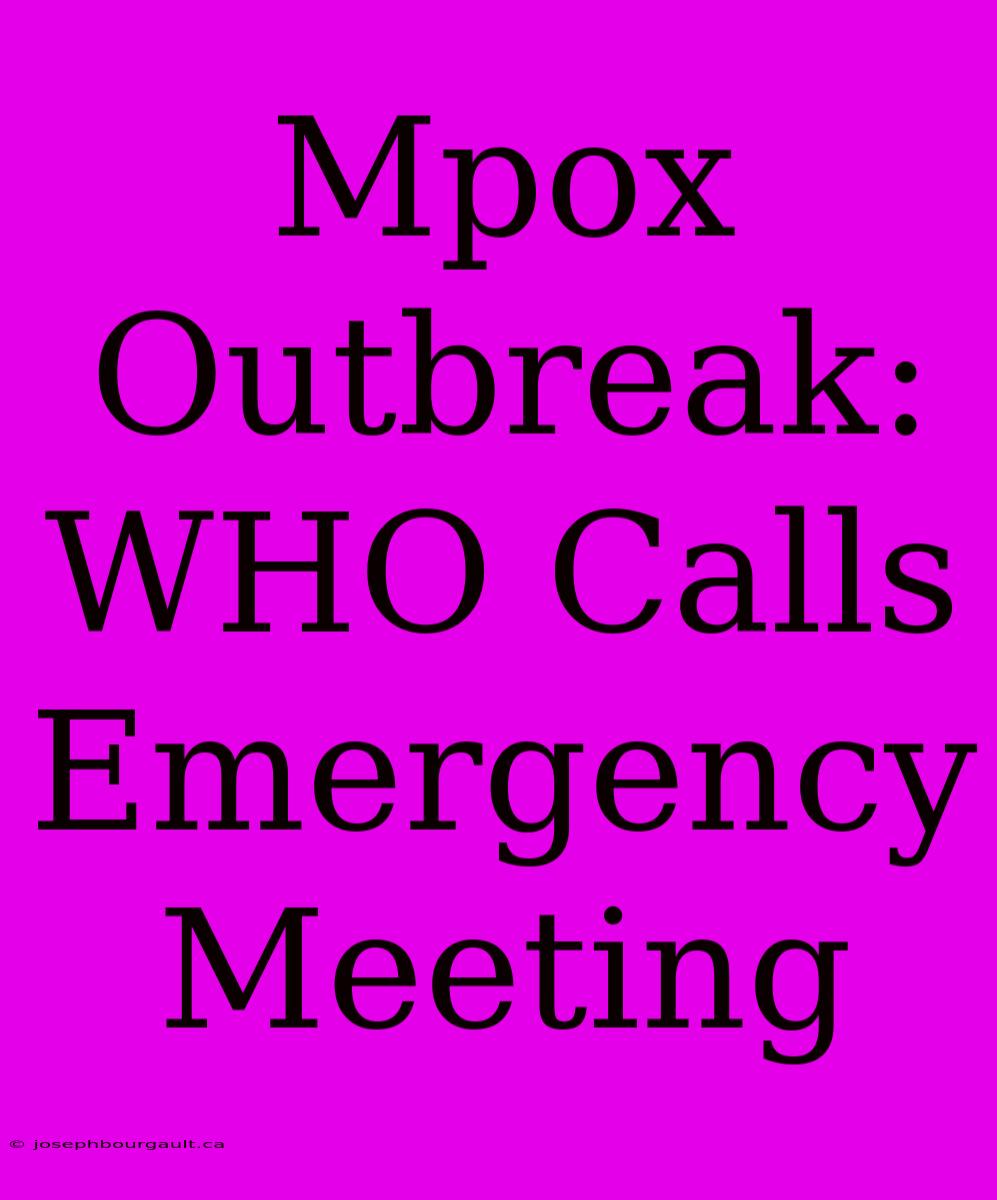Mpox Outbreak: WHO Calls Emergency Meeting - What You Need to Know
The World Health Organization (WHO) has called an emergency meeting to discuss the ongoing Mpox outbreak. This decision comes after a significant increase in cases globally, raising concerns about the potential for a wider spread.
What is Mpox?
Mpox, previously known as Monkeypox, is a viral disease that can cause a range of symptoms, including fever, rash, headache, muscle aches, and swollen lymph nodes. It is usually spread through close contact with an infected person or animal, or through contact with contaminated materials.
Why the Emergency Meeting?
The WHO's emergency meeting is a crucial step in addressing the growing Mpox outbreak. Here are some key reasons for the urgency:
- Rapid Increase in Cases: The number of reported Mpox cases has risen sharply in recent months, particularly in countries where the virus was not previously endemic.
- Global Spread: Mpox is now reported in numerous countries across multiple continents, indicating its potential for wider transmission.
- Limited Access to Treatment: While the disease is often self-limiting, there are limited treatment options available, particularly for severe cases.
- Lack of Public Awareness: Many people remain unaware of the symptoms, transmission, and prevention measures related to Mpox.
What the Meeting Could Mean
The emergency meeting could lead to a number of important developments:
- Declaration of a Public Health Emergency: If the WHO declares a Public Health Emergency of International Concern (PHEIC), it would signal a global health crisis requiring coordinated international action.
- Increased Funding and Resources: A PHEIC declaration could also unlock additional funding and resources for Mpox research, vaccine development, and treatment initiatives.
- Enhanced Surveillance and Response: The WHO could recommend increased surveillance and reporting of cases, as well as improved testing and contact tracing protocols.
- Public Health Messaging and Education: The meeting may result in intensified public health messaging campaigns to raise awareness about Mpox and encourage preventive measures.
What Can You Do?
While the WHO's meeting is crucial, individual actions also play a vital role in preventing the spread of Mpox:
- Stay Informed: Learn about the symptoms, transmission, and prevention measures related to Mpox.
- Practice Good Hygiene: Wash your hands frequently, especially after contact with animals or sick people.
- Avoid Close Contact: Limit close contact with people who may be sick, particularly those exhibiting symptoms consistent with Mpox.
- Seek Medical Attention: If you develop any symptoms suggestive of Mpox, contact your healthcare provider immediately.
The ongoing Mpox outbreak is a serious public health concern, requiring a coordinated global response. The WHO's emergency meeting is a critical step in addressing the situation and mitigating the risks associated with this emerging disease.
Stay tuned for updates on the outcome of the WHO's emergency meeting and follow official health guidelines for the latest information and recommendations regarding Mpox.

